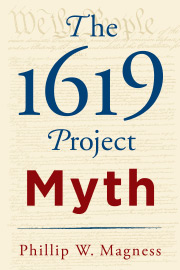Nobel laureate economist Joseph E. Stiglitz is on a mission to smear free market economists as progenitors of “fascism.” After first making this insinuation in his recent book The Road to Freedom, Stiglitz has become even more brazen in charging “neoliberals” with steering the world toward dictatorship. In a new interview, Stiglitz charges:
It is evident today that free and unfettered markets advocated by Hayek and Friedman and so many on the Right have set us on the road to fascism, to a twenty-first-century version of authoritarianism made all the worse by advances in science and technology, an Orwellian authoritarianism where surveillance is the order of the day and truth has been sacrificed to power.
Note that he provides no evidence for his defamatory allegations against Hayek and Friedman, both of whom denounced fascism in their lifetimes. But there’s another problem with Stiglitz’s line of attack: his own lengthy track record of coddling undemocratic regimes and authoritarian dictators.
In 2007, Stiglitz traveled to Caracas, where he gushed over Venezuela’s Marxist leader Hugo Chavez, crediting him with poverty alleviation and economic reform. In reality, the Chavez regime ushered in a collapse of the Venezuelan economy that persists to this day.
Chavez’s handpicked successor, Nicolas Maduro, refuses to leave office after losing reelection in a landslide last month. Maduro concocted his own forged election results to declare himself the victor and is now waging a brutal campaign of military suppression and arrests in a desperate bid to remain in power.
Although Stiglitz has been more cautious about Maduro in recent years, he left no doubt of his appreciation for the Chavez regime. Shortly after meeting with the Venezuelan dictator, Stiglitz became a vocal media advocate for Chavez’s proposed “Bank of the South.” Chavez created this initiative in an effort to induce other Latin American countries to withdraw from the International Monetary Fund and World Bank.
Chavez’s speeches about his scheme sound eerily similar to Stiglitz’s arguments in his new book. They rant and rave about an “economic order dominated by the Neoliberalism” and present the Bank of the South as an “alternative” to free-market capitalism. Blending an overt socialist political agenda with economic development funding, he pledged to seed the project with Venezuela’s vast oil wealth.
Stiglitz previously served as the World Bank’s senior vice president and chief economist. By publicly endorsing Chavez’s competitor to the World Bank, he gave it credibility in the eyes of foreign governments and the international media. At its launch in late 2007, it became clear that Chavez intended to use the “bank” to prop up other regional leftist governments. Chavez recruited his counterparts Lula de Silva of Brazil, Néstor Kirchner of Argentina, and Evo Morales of Bolivia to the effort and rolled it out as a tool to inaugurate socialism across the continent.
In practice, the Stiglitz-backed scheme amounted to naught. Venezuela’s economy soon collapsed under the weight of Chavez’s policies, including its state-run oil sector. After over a decade of delays, the Bank of the South has yet to deliver on any of its promised development loans and appears to have settled into dormancy. Venezuela’s state-controlled media still touts it as an “accomplishment” of Chavez’s economics. Still, in practice, it has amounted to little more than another corrupt shell entity for cronies of the Marxist regime.
As of this writing, Stiglitz has gone silent about the unfolding humanitarian crisis in Venezuela. He never mentions his own role in propagandizing Chavez’s economic schemes to the world or his visits to Caracas to advise Nicolas Maduro’s predecessor and personal mentor. Instead of projecting complicity in authoritarian regimes onto Friedman and Hayek, Stiglitz would be well-served to take a gaze in the mirror.










